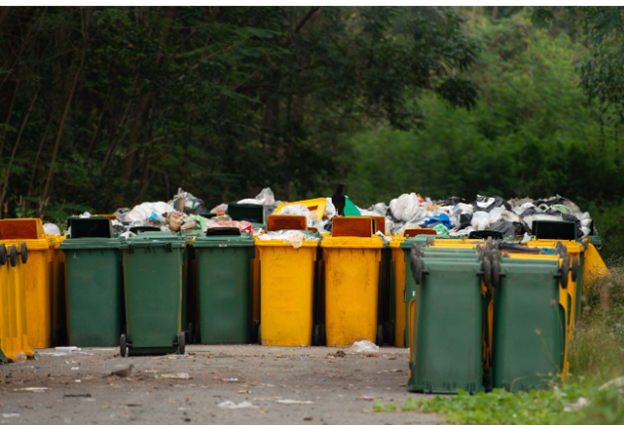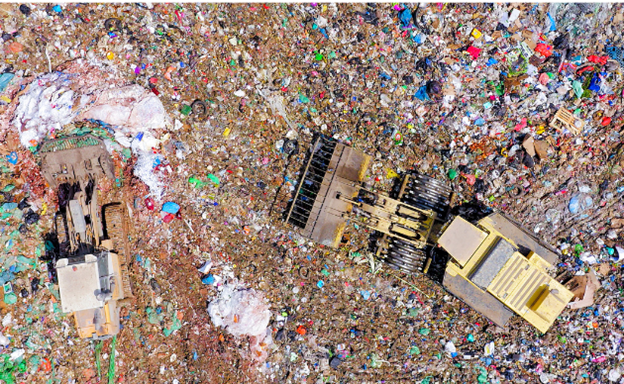Expert Witness – Landfill, MSW, and Waste Management
Overview of Landfill and Municipal Solid Waste (MSW) Management
Landfills play a crucial role in managing municipal solid waste (MSW), which includes everyday items discarded by the public, such as packaging, food scraps, and household products. MSW management encompasses the collection, transportation, processing, recycling, and disposal of solid waste materials. Landfills, where most MSW end up, are engineered sites designed to minimize environmental impact while safely containing waste. Effective landfill management is essential for protecting public health, preserving the environment, and managing the growing volume of waste generated by modern society.

Industrial Practices in Waste Management
The waste management industry involves a broad spectrum of activities, from waste collection and recycling to the operation of landfills and incineration plants. Key industrial practices include waste segregation, recycling, composting, and the controlled disposal of waste in landfills. Advanced waste management practices aim to reduce the environmental footprint of waste disposal, increase recycling rates, and recover energy from waste materials.
Landfills are complex systems requiring careful management to prevent leachate contamination, methane emissions, and odor problems. Modern landfills are equipped with liners, leachate collection systems, and gas extraction systems to mitigate these risks. Additionally, many landfills are now being converted into waste-to-energy facilities, where methane gas generated from waste decomposition is captured and used to produce electricity.
Qualifications for a Waste Management Expert Witness
An expert witness in landfill and MSW management must possess a deep understanding of environmental engineering, waste management practices, and regulatory compliance. A solid academic background in environmental science, engineering, or a related field is essential, often complemented by advanced degrees and professional certifications. Practical experience in designing, operating, and regulating landfills and waste management systems is crucial for providing informed and credible testimony.
In addition to technical expertise, a waste management expert witness should know the legal and regulatory frameworks governing waste disposal and landfill operations. This includes understanding federal, state, and local regulations related to waste management, such as the Resource Conservation and Recovery Act (RCRA) in the United States, which governs the disposal of solid and hazardous waste.
The ability to communicate complex technical information clearly and effectively is also vital. An expert witness must be able to explain landfill engineering, waste management practices, and regulatory issues in an understandable way to judges, juries, and legal professionals, ensuring that their testimony is persuasive and comprehensible.
Common Legal Issues in Landfill and Waste Management
Legal disputes in the landfill and waste management sector often arise from various issues. One frequent area of contention involves environmental compliance. Landfill operators must adhere to strict environmental regulations to prevent pollution and protect public health. Non-compliance with these regulations can lead to legal action, with disputes often centered around groundwater contamination, air pollution from landfill gas emissions, or improper waste disposal practices.
Another common legal issue is related to land use and zoning. The siting of new landfills or expansion of existing ones can lead to conflicts with local communities, environmental groups, and government agencies. These disputes may involve challenges to the permitting process, concerns about the landfill’s environmental impact, or opposition from residents who do not want a landfill in their vicinity.
In addition, legal issues may arise from waste management contracts, particularly in waste collection, recycling, and disposal. Disputes can occur over the terms of these contracts, the performance of waste management services, or the allocation of costs and responsibilities between parties.
The Role of an Expert Witness in Waste Management Disputes
An expert witness plays a critical role in legal disputes involving landfills, MSW, and waste management. Their primary responsibility is to provide objective, scientifically sound opinions that help the court understand the technical and regulatory aspects of the case. This might involve evaluating landfill design and operation, assessing compliance with environmental regulations, or analyzing the environmental impact of waste management practices.
An expert witness may also be called to review and interpret technical data, such as groundwater monitoring reports, air quality data, or waste characterization studies. Their expertise can determine whether a landfill operates within legal and regulatory guidelines or whether a waste management company has fulfilled its contractual obligations.
Furthermore, an expert witness can offer insights into industry best practices, providing an informed perspective on whether a party’s actions were consistent with accepted standards in the waste management industry. Their testimony can be pivotal in resolving disputes related to environmental compliance, land use, and contract performance, helping to ensure that the legal process is informed by accurate and reliable technical information.
About LEC Partners (formerly LEC Partners)
LEC Partners was founded in 1995 and currently has over 150 experts worldwide. These working experts are renowned, hand-selected leaders, with over 97% holding advanced degrees and averaging over 30 years in their respective fields.
Have some questions?
Not sure where to start?
Let's start a conversation. We're here to help you navigate
the bioeconomy with confidence.

